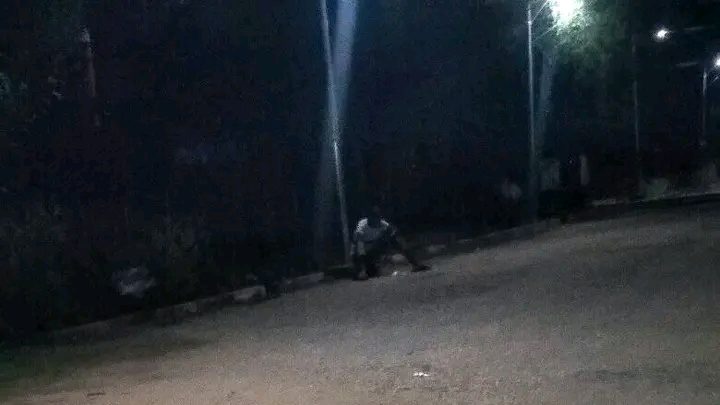The weather temperature in Sokoto state has not gone less than 40 degrees Celsius in the past two months. The residents are feeling the impact of the weather and the students of the Usmamu Danfodiyo University, Sokoto has not been left out.
By Taufeeq Imam
The hot weather has left the students struggling academically and socially. With temperatures soaring high and scarce rainfall exacerbating the situation, academic activities on campus have been severely affected. Several students have taken up the initiative of reading outside at night, unlike the usual practice of reading in the library or the lecture halls to escape the heat.
Yinusa Taiye , a resident at Benjee Hostel in the Usmanu Danfodiyo University, Sokoto has experienced a slow pace in his study life which he did effortlessly in the past. He is struggling to endure the harsh temperature in his residence but the heat keeps advancing every single day.
“Ever since I stepped foot into this campus, this has been the most harsh weather I have ever experienced in UDUS. The funny fact is that no matter the strategies taken in mitigating the harsh weather, there is no respite for myself and other students.
“ I now sleep outside in the night just to escape this hot temperature. The heat sometimes hinders me from going to study at night because of the lack of electricity in classrooms amidst the suffocating heat”, he told ASHENEWS.
Adewale Sodiq, a 400-level Political Science student laments how unfavourable the weather has been to him describing this year’s heat as the worst he has experienced. Sodiq who resides Gidan Igwai Area in Sokoto said the weather has been a challenge to him in every way.
“Academically, this has been a big challenge for all students in UDUS which I am not excluded from. I have friends who have withdrawn because they could not cope with this weather. My experience of the weather in the north is worth telling as it cannot be compared with the weather of my hometown.”
Abdulkadir Rabiat Olatanwa, a 400-level Education and Biology student bitterly exclaimed how the heat has hindered her academic seriousness. Rabiat who resides at Fatima Balarabe Hall of Residence lamented how the heat is also unbearable at the University hostel.

“The weather is not conducive at all making learning difficult. The heat is unbearable. I usually read for like six hours in the library but because of this heat, I hardly use six hours. This is affecting my academic performance because I am supposed to at least cover all my handouts which I’m unable to do.
“ To sleep inside my room is a problem. I have to carry my bed outside every day to secure space to sleep due to the excess heat,” she bemoaned.
While some students are bemoaning the heat, other students have become used to it and have adopted strategies to get used to it. Hanafi Abdulkabeer Olarewaju is among the second category of students. His perception of the heat is entirely different from the experience of other students.
Olarewaju, a student from the Department of Education Foundation, believe the weather is now bearable to him since he has adapted to it from the time he stepped foot into the University.
“ The weather is unfavourable no lies, but I have adapted to the system which has made me not lament like other students”, he said.
Deforestation responsible for the harsh Sokoto weather – Environmentalist
Research showed that the hot weather in Sokoto is said to have been caused by scarce rainfall and deforestation. To mitigate this, environmentalists and climate change Advocates give insights on how to overcome these challenges.
Dr. Mohammed Bukar Ngamdu of the Department of Geography, Yobe State University Damaturu asserted that the excessive heat in this part of the country is a result of global climatic change which can be attributed to human activities.
“Activities such as deforestation among others without replacing them are responsible. For instance, in an environment, trees serve as carbon storage facilities, that is the excess carbon in the atmosphere being stored in the trees.”
According to him, as a result of continuous climatic change, the southern part of Nigeria keeps experiencing the problem of flooding. He noted that the northern part keeps experiencing the problem of increased heat waves, desertification and drought.
“Climatically, as of now, if you move northward in the state, the rate of desertification, drought and excessive heat keeps increasing in that area. For instance, when you compare places like Machina, Yunusari and Yusufari in northern Yobe, they are hotter than places like Fika, Gujba and Gulani located in the Southern part of the state.”
Ngamdu further attributed the high rate of health issues such as dehydration and kidney diseases among people in the state to the increase in the heat waves. He then called on policymakers in the state to enact laws that would discourage people from cutting down trees.

